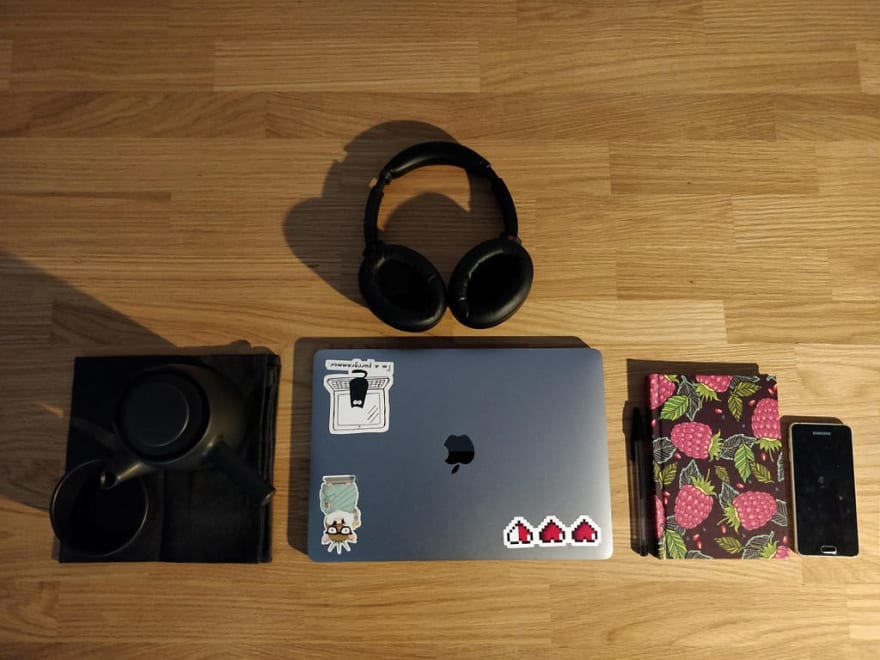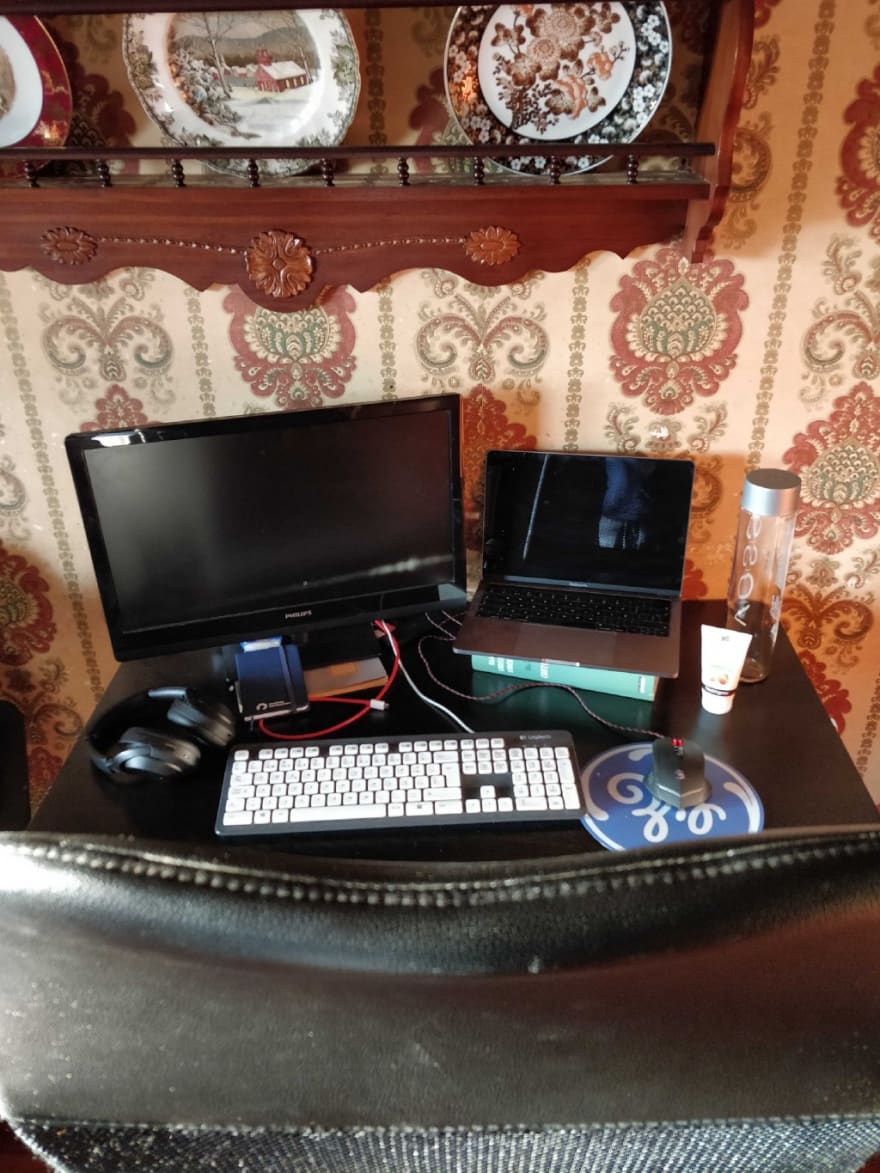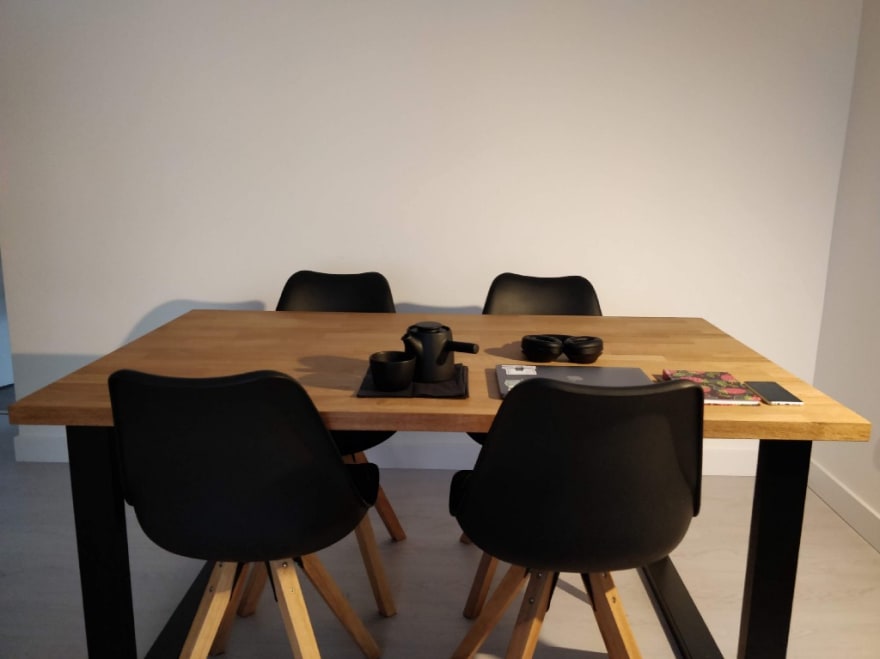Re·mo·tees (rĭ-mōt-ēs): A person hired to work for another from outside the office, usually from home.❊
For the past month Runtime Revolution has been working full remote, for reasons the whole world is aware of. Going remote is such a game changer at Runtime, and to me personally, that I immediately wanted to blog about it. This time ‘round I twisted things a bit and asked some of our readers (fellow co-workers) to share their experiences on (forced) remote work.

In this post I’m joined by Ana Gonçalves, João Ribeiro, and Maria Luís Duro. Ana is a Team Leader and has been with Runtime Revolution for four years. During that time she has contributed to ten different projects! João is another Team Leader and he has been with Runtime for two years. Maria is our IT Recruiter. She’s hiring! 😉
Are you working alone at home? Are you enjoying it?
Ana: “Me and my partner are both working from home right now, we work in separate rooms because we have meetings quite often. We need separate spaces so we don’t speak over each other. Sometimes we notify each other if there’s going to be a meeting so that the other doesn’t make too much noise. Other than that we basically work as if we were alone and try not to interact much during the day, apart from lunch and snack times. It can be nice to work without the usual hustle of the office and with my cat’s occasional company, but human interaction is also missed. Overall, working from home has its pros and cons. For now I’m enjoying it but I’m afraid I might get over it soon.”
João: “I’m not alone, since my girlfriend is also remote during this time.
We made some ground rules before starting this period and one of them is to work in separate rooms in the house, since we have this possibility.
These two “offices” were also set up in rooms that we don’t use for our off-work time, which means we can disconnect and still be in the living-room / kitchen / bedroom without the work office feeling. I can say that this new experience is definitely different from the normal routine, it’s better in some aspects but at the same time, worse in others. I think I’ve been able to focus more easily than in a busy day at the office, since I don’t get interrupted as often.”
Maria: “I’m currently “in quarantine” alongside my parents. The three of us are working but in separate spaces since we all have jobs that require calls or video chats. For now it’s all going well and we try to respect each other’s schedules. We eat lunch together to maintain interaction, have coffee breaks, and try to keep a fairly normal life. Since this is a particular situation in which we all need to stay at home I don’t feel my personal life is any more involved in my day-to-day than it was before. Because we’re not used to spending all hours of the day with each other sometimes we get a bit annoyed but it’s a feeling that goes away fairly quickly.”
Now that you don’t commute, what do you use that time for?
Ana: “I usually spend about 2 hours a day to commute and I actually used to read during that time but now I don’t read as much. Now I try to be mindful with my time so I don’t fall into the trap of working more than usual. I use the extra time to bake (I like making my own sourdough bread and the extra time is very much appreciated), tidying up, or use the extra hour in the evening to do some yoga.”
João: “In the morning I get up at the same time as I did before, I just get ready a lot more slowly and the rush part of my day is not here anymore. I use that time to catch up on the news (“real” television news), calmly eat my breakfast, and sometimes still read a bit as I used to do on the train.”
Maria: “Usually in the morning I go for a run outside and come home to continue some workout exercises I would otherwise do at the gym. I save the end of my day to play video games (I am revisiting some oldies like Pokemon and Kirby!)”
How did you, and your team, adapt to the long distance?
Ana: “We as a team work from an office but we work remotely with the product team. We have standups twice a week with them, so that interaction hasn’t really changed that much. We added a daily standup internally so we see and talk to each other regularly and PRs [Pull Requests — Ed.] are usually published in a Slack channel, as we did before. We also created a Zoom link that we called “Virtual Kitchen” so anyone from the team can join after lunch and during breaks to talk to each other about whatever they want, as we would do if we were in the office.”
João: “In my project we’re divided into different teams, inside the project, so in my team we started doing two daily check-ins, one in the morning and one near the end of the day. I feel this keeps the team connected even though there might not be that many updates in each one, but we get to see each other and also talk a little bit. Apart from that nothing much changed, if you need help with something you talk to who you think might help you and schedule a call, or simply write a message in your channel and get some responses to it. For all the people in the project we also started doing some “Watercooler Calls”, twice a day you can get together with others and just talk about “nothing”, which is great to keep the mental sanity!”
Maria: “We adapted pretty well. We talk everyday and maintain our weekly meetings. Personally I feel the response time isn’t so immediate but at the same time it doesn’t have a particularly adverse effect in our work. I believe that now more so than before, all my questions are answered. Because of this change, working from home has made us more aware that we need to maintain all channels of communication open and do business as usual.”

Name one thing that is absolutely indispensable to have at your desk for remote work
Ana: “Tea and headphones are very much indispensable to me, having wireless headphones is even cooler because I can walk around the house and still hear whatever is being said in the “Virtual Kitchen”.”
João: “Water, ANC Headphones and hand cream to keep my hands from drying!”
Maria: “ My desk is pretty basic, since I’m working in the living room (where we eat haha). I only have a notebook, a pen, and a bottle of water to keep me hydrated :)”
I echo the sentiments expressed above by my co-workers. I’m also at home with someone who’s doing remote work and we also work in separate rooms. I wonder why do we seek a quiet place to work, when at the office we would be working in an open space with multiple distractions? Why do we seek the shift from busy open space to quiet alone room?
As for the added “bonus” time, I use it differently. Oddly enough I find my concentration levels varying throughout the day and I tend to compensate by spending my commute time on working hours. But that is not the norm and so far I was able to catch up seasons one and two of Westworld’s TV Series.
Runtime Revolution’s culture and values are spread throughout its teams and their projects. But that doesn’t restrict them in adopting different routines for remote work. During this time I’ve worked with teams relying mostly on group text messaging and occasional voice calls (through Slack), and other teams opting for an always on group voice call with occasional text (through Discord). Though apparently similar solutions, I find voice to be less disruptive than text. As soon as I know the discussion doesn’t concern me, I find it easier to ignore human voice. That doesn’t happen with notification beeps and flashing icons luring me to text waiting to be read.
I want to thank Ana Gonçalves, João Ribeiro, and Maria Luís Duro for taking part on this post and sharing their insights. The Q&A interviews were conducted safely on Slack and no COVID-19 virus was spread through them.
❊ Remotees is word I made up. The title is a pun on Peter Seibel’s wonderful book Coders At Work. Read it!
I work at Runtime Revolution as Full Stack Rails developer. We help startups kickoff their business and reach the next level.





Top comments (0)